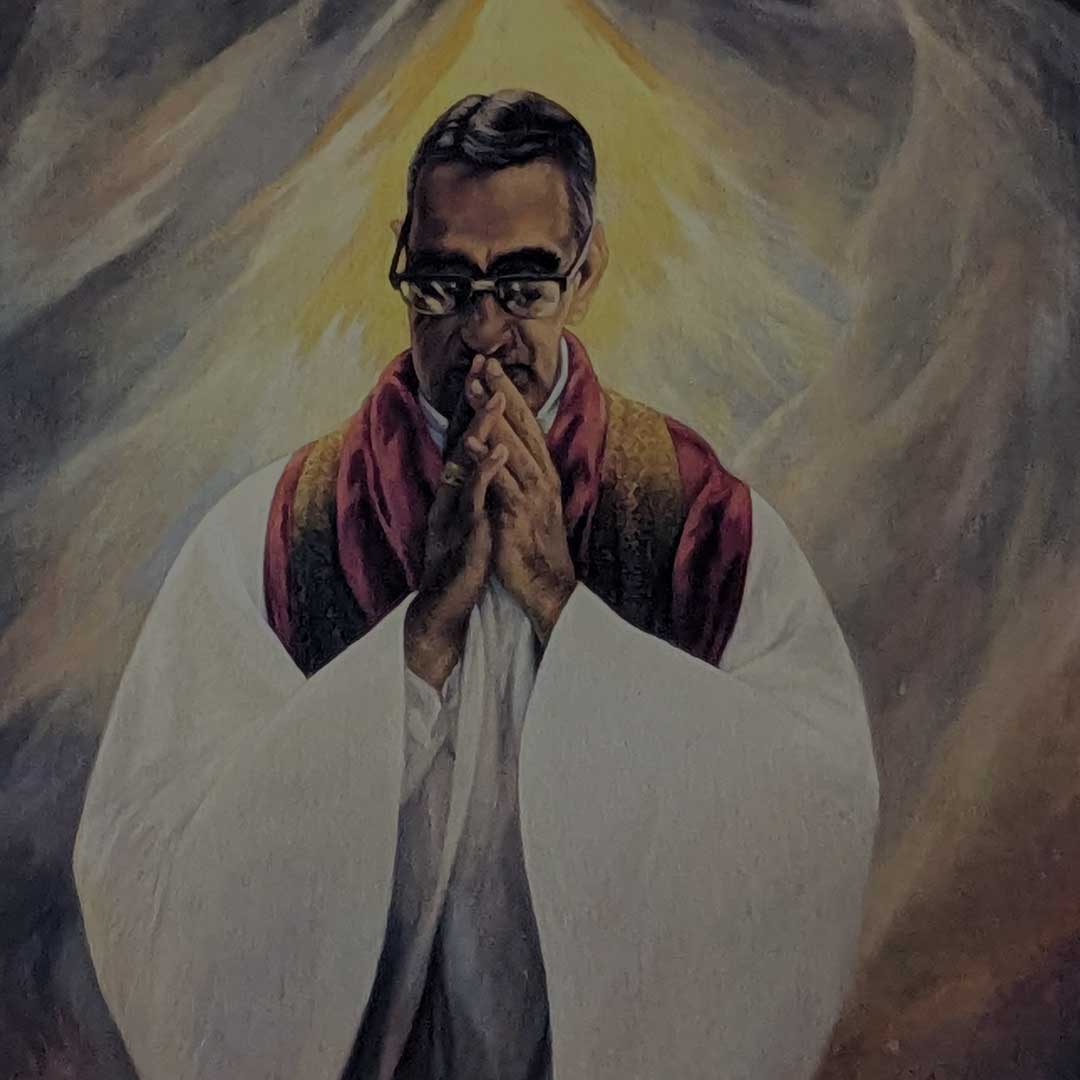
Reflections on Monsignor Oscar Romero
By Bryan Varela and Fátima Pacas, Cristosal Education Team, El Salvador
We share common conditions in northern Central America, countries marked by violence, impunity, corruption, and inequality. These problems are exacerbated by systems that favor the few at the expense of the impoverished majority. In this complex reality, however, our communities have continued their history of collaboration and solidarity with communities around the world, siblings who have walked alongside us with commitment and courage.
El Salvador has lived a history marked by blood and struggle. We see this in the multiple massacres perpetrated in the last century, from the indigenous and peasant massacre of 1932, the massacre of the students in 1975, the massacre of Sumpul in 1980, El Mozote and surrounding areas in 1981, El Calabozo in 1982 and many more grave violations of human rights throughout the armed conflict.
But, serious threats to human rights continue today. Right now, in 2024, we are living through an onslaught of repressive policies that have resulted in more than 70,000 detentions without due process and more than 250 deaths in state custody while the gains we have made in trying to build a democracy are being lost to punitive populism.
We recognize that our communities have not faced these challenges alone, neither in the past nor today. Many faith communities have played a pivotal role, building bridges of solidarity that transcend geographic boundaries and time. We are not talking about just any kind of faith community, not just any mission, but about faith communities that take a radical stance, far removed from imperialist and colonialist thinking, to embrace a global mission to build a more just world.
We recognize that our communities have not faced these challenges alone, neither in the past nor today. Many faith communities have played a pivotal role, building bridges of solidarity that transcend geographic boundaries and time. We are not talking about just any kind of faith community, not just any mission, but about faith communities that take a radical stance, far removed from imperialist and colonialist thinking, to embrace a global mission to build a more just world.
In a reality marked by violence and turbulence, the search for peace and democracy is not a linear or finished process. Rather, it resembles a spiral of ups and downs, in which many men and women have given their lives, walking alongside the victims of a violent system and defending those who are silenced and end up without a voice. Monsignor Romero, “the voice of the voiceless”, assassinated for his practice of faith and love from the preferential option for impoverished people, represented the true meaning of sentir con la Iglesia, which is more than to “feel” with the church but to identify and embody it.
His life and practice of faith taught us that, even if the hierarchy at the highest levels of the institutions we belong to are opposed, we must continue with the mission of emancipating all those people who have been marginalized by inequality and violence. Forty-four years after his death, this teaching becomes ever more meaningful as we face an advance of repressive policies, setbacks in democracies, and injustices.
Speaking of the search for justice, particularly for those most impoverished, he said: “If they ever take away our radio, suspend our newspapers, do not let us speak, kill all our priests and the bishop too, and you are left, a people without priests, each one of you must be a microphone of God”.
On this anniversary, it is important to pause and ask ourselves what it means to sentir con la Iglesia, to identify with the people who are the church? How current is his message? We could say that it means to take a stand in the face of injustice, it means we do not remain silent when we are told to keep quiet, we must raise our voice for dignity and walk together to build the Reign of God on earth. His message means the beatitudes are to be lived in the present and that the church is not a temple, but the people who observe the teachings of the Gospel in their daily lives.

